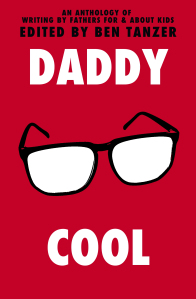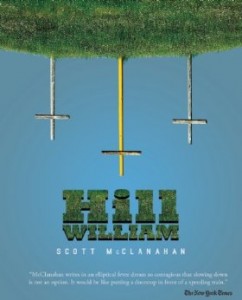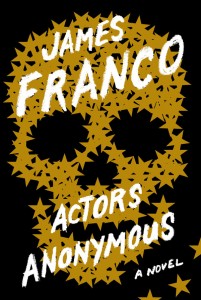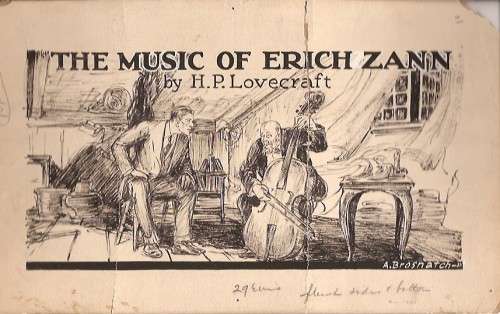 Daddy Cool: An Anthology of Fathers Writing For and About Kids
Daddy Cool: An Anthology of Fathers Writing For and About Kids
Edited by Ben Tanzer
Artistically Declined Press, 2013
272 pages / $15 Buy from Amazon or Artistically Declined Press
My wife and I are arguing over the amount of books in our house. She says it stresses her out that there are stacks of my books piled into every corner of our duplex.
I ask if it would make her feel better if all of my books were placed on the built-in bookcase in the back of the house.
She reminds me that the back bookcase is already overflowing, some shelves being two books deep, others having stacks of books on top of the books lining the shelves.
We start boxing up some books and DVDs to sell at the McKay in Nashville. I hope this will alleviate her stress, but then she asks what we’ll buy with the store credit I’ll inevitably insist upon in exchange for my prized books.
We can get whatever you want, I tell her.
All I want are books and things for the baby, she tells me. Then she concedes we’ve already developed a pretty great book collection for him.
Finally, something we can agree upon with regards to books. Our son is not even six months old and he has an entire shelf of board books and even more picture books. My wife and I have also prided ourselves on our discerning taste, returning or selling books like Chamelia and Skippyjon Jones with problematic messages. Plus, in our state all newborns are eligible for the Imagination Library, so our son’s book collection grows by at least one book every month.
My wife and I come from impassioned reading stock. My mother bought me tons of books (some of which are now on my son’s aforementioned shelves) and my mother-in-law was a preschool teacher for years. I’m certain ya’ll can see why we want to pass on the joy of reading to our kid.
Daddy Cool is “an anthology of writing by fathers for and about kids.” It’s an idea that is intoxicating to Gen X and Y parents—the hip dad, the cool dad, the dad who shares an interest with his children. In many ways it’s a direct backlash to how their boomer parents treated them.
I can certainly relate. I spend far too much time agonizing over which book to read my son at bedtime (it’s not like he cares). I also am on the hunt for books to share with him that match my same literary tastes, which is why when I learned about Daddy Cool I was very excited, especially because it’s edited by Ben Tanzer, who is a shining star in both the dad writer and indie writer circles.
Tanzer’s introduction to the anthology is heartrending, too. He begins his introduction by discussing how he intended to begin his introduction:
I imagine I would have gone on to say something about the profound impact of reading to your child, telling stories, bonding, and brain development, and how as a writer anything I might say about any of this can only be magnified, or maybe it’s illuminated, though regardless, I would have said something about just how cool this project is, because we are about words and narrative and immersing ourselves in the stories of our lives.
But what Tanzer winds up doing is even more important than stressing our future’s need to love reading. Tanzer writes about his dad, how he read to Tanzer and his brother as children, how he frequented the library, how he made Tanzer the writer that he is today, and how now that he’s gone, Tanzer thinks about his dad, especially when working on projects like the Daddy Cool anthology. It’s this sort of honest pathos that draws me into a book.
READ MORE >

 Nothing
Nothing The ring is sparsely decorated: a white mat with pleasant turquoise bands to hold the war in. The crowd’s looking at it. The lights go down. Chad Harbach walks out into the middle of the ring. The crowd goes silent.
The ring is sparsely decorated: a white mat with pleasant turquoise bands to hold the war in. The crowd’s looking at it. The lights go down. Chad Harbach walks out into the middle of the ring. The crowd goes silent. Hill William
Hill William Actors Anonymous
Actors Anonymous

 Daddy Cool: An Anthology of Fathers Writing For and About Kids
Daddy Cool: An Anthology of Fathers Writing For and About Kids  “I’ve been learning about and drawing dinosaurs since I was a kid,” explains Herschel Hoffmeyer, creator of the Apex Theropod Deck-Building Game,
“I’ve been learning about and drawing dinosaurs since I was a kid,” explains Herschel Hoffmeyer, creator of the Apex Theropod Deck-Building Game,  This evolutionary gameplay is also the perfect complement to the theme of becoming the world’s top saurian predator. Herschel explains, “Most of the game’s mechanics are shaped around the theme, and three are really unique to the game. The first is the territory-based decks. With the environmental deck affecting those territories, that drives a sense of environment immersion. The second is that each player has a nest. The nest is separate from your playing deck and unique to whatever dinosaur you’re playing as. In the nest, you hatch cards that consist of just your dinosaur, and you also bring any prey hunted back to your nest to eat later. The third unique mechanic is the unforgiving boss battles. To dominate each territory, you have to fight off the other competing apex predator of that territory, and that is the boss. In a 5-player game, you have eight total bosses, and in a single-player game, you have three bosses and one ultimate boss.”
This evolutionary gameplay is also the perfect complement to the theme of becoming the world’s top saurian predator. Herschel explains, “Most of the game’s mechanics are shaped around the theme, and three are really unique to the game. The first is the territory-based decks. With the environmental deck affecting those territories, that drives a sense of environment immersion. The second is that each player has a nest. The nest is separate from your playing deck and unique to whatever dinosaur you’re playing as. In the nest, you hatch cards that consist of just your dinosaur, and you also bring any prey hunted back to your nest to eat later. The third unique mechanic is the unforgiving boss battles. To dominate each territory, you have to fight off the other competing apex predator of that territory, and that is the boss. In a 5-player game, you have eight total bosses, and in a single-player game, you have three bosses and one ultimate boss.” Kaleidoscopic Omniscience
Kaleidoscopic Omniscience